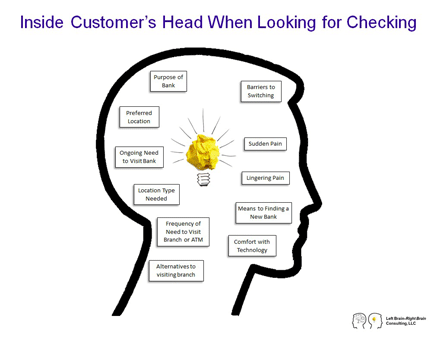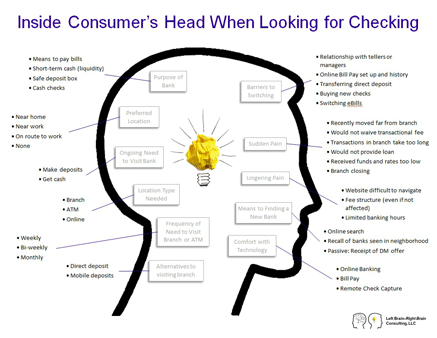How to Get Inside Your Customer’s Head
(to Avoid the #1 Mistake Every Marketer Makes)

The solution involves turning your marketing viewpoint around and looking at your business from where your customer is standing.
This technique works for every stage of the customer lifecycle (consumer and business) – Acquisition, cross-sell/up-sell, retention and win-back. It revolves around understanding the buyer’s decision process.
6 Steps to Getting Inside Your Customer’s Head
Step 1: Get Up
Literally get up out of your chair and sit on the other side of your desk. Better yet, leave your office and go someplace new. To think from a different point of view, it helps to physically put yourself in a different position.

Step 2: Invite Others
Include 2-3 others who are not intimately involved in the marketing of your product or service. The reason is to prevent tunnel vision.

Step 3: Pick Your Target
Select the target audience you want to work on first. You will potentially need to do this for each target or you can use a combined target as a starting point. For example, this could be prospects for a security system or customers thinking about going to a competitor.

Step 4: Draw an Outline
Step 5: List the Issues
On the inside of the head draw boxes and in each box write a few words to describe the different issues your customer/prospect might consider (the same concept applies to business buyers). For example,
- Alternative purchase categories
- Decision influencers
- Features lacking in existing product/service
- Need/want drivers
- Information sources
The example below is for new checking account bank prospects

[Click image to enlarge]
Step 6: Add Options
On the outside of the head draw a line from each of the boxes to an open area. Write down the specific options related to each issue. For example, if you are marketing security systems, you might list “lighting” as an alternative purchase category or possibly increased theft insurance.

[Click image to enlarge]
Once you have completed this process, you should have a different perspective on whether your current products, messaging and offers are in line with your customer’s decision-making process.

